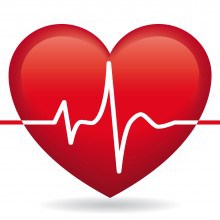New York– Heart-healthy diets are naturally low in dietary cholesterol and can help reduce the risk of heart disease and stroke, say researchers, adding eating one egg a day is not associated with the risk of cardiovascular disease (CVD).
Too much cholesterol in blood contributes to formation of thick, hard deposits in arteries, a process that underlies most heart diseases and strokes.
Reducing dietary cholesterol by focusing on an overall heart-healthy diets that replace saturated fats with polyunsaturated fats remains good advice for keeping artery-clogging LDL (low-density lipoprotein) levels healthy, according to the scientific advisory from the American Heart Association.
“Saturated fats — mostly found in animal products such as meat and full fat dairy, as well as tropical oils — should be replaced with polyunsaturated fats like corn, canola or soybean oils,” said Jo Ann S. Carson from UT Southwestern Medical Center in the US.
“Foods high in added sugars and sodium (salt) should be limited,” Carson said.
The meta-analysis included in the advisory included randomised, controlled, dietary intervention trials designed to prove cause and effect.
According to the study, published in the journal Circulation, there is a dose-dependent relation between dietary cholesterol and higher levels of artery-clogging LDL when the range of dietary cholesterol tested was beyond that normally eaten.
This relationship persists after adjustment for dietary fat type. As per the advisory, in general, egg intake was not significantly associated with the risk of cardiovascular disease in the studies that were examined.
According to researchers, it’s reasonable to eat one whole egg (or its equivalent such as 3 ounces of shrimp) daily as part of a heart-healthy diet for healthy individuals.
“Consideration of the relationship between dietary cholesterol and CVD risk can’t ignore two aspects of diet. First, most foods contributing cholesterol to the US diet are usually high in saturated fat, which is strongly linked to an increased risk of too much LDL,” Carson said.
“Second, we know from an enormous body of scientific studies that heart-healthy dietary patterns, such as Mediterranean and DASH (Dietary Approaches to Stop Hypertension) diets are inherently low in cholesterol,” Carson said. (IANS)















